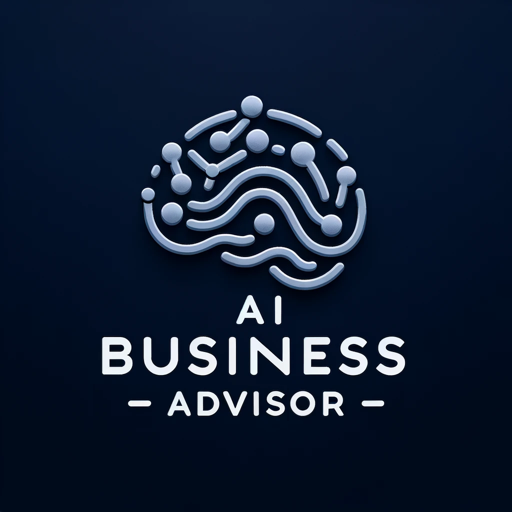AI Policy Advisor-AI policy generation tool
AI-powered policy creation tool
A tool to help you initiate an AI Policy.
After 1st Draft, Ask for Sections to be Written.
More Detailed Answers = Better Responses.
To commence, write "Begin".
Related Tools
Load More
Policy Advisor
I assist public policy professionals with strategic policymaking for government

Your AI Council
Generate the most relevant perspectives for any question you may have, giving you a much richer answer right away.

AI Business Advisor
Get the Highest Level Business Advice from ChatGPT that will 10X Your Results Using 10X Less Effort. No More Complicated Prompts Needed!

AI Legal Counsel
AI legal assistant specializing in legal research, legal writing, text review, and general legal consultation.

AI Teacher
Expert teacher in AI

AI Consultant Pro
Top AI consultant who creates detailed project plans with innovative AI solutions.
20.0 / 5 (200 votes)
AI Policy Advisor: Purpose and Design
AI Policy Advisor is designed to assist organizations in developing comprehensive, ethical, and legally compliant AI policies. The core purpose is to guide users through the complex landscape of AI governance, helping them to establish a structured policy that aligns with industry regulations, mitigates risks, and ensures responsible AI use. The advisor uses a step-by-step questionnaire to gather relevant details about the organization's operations, data management practices, and AI applications. Based on this information, it dynamically generates a customized AI policy outline tailored to the organization's size, industry, and geographical scope. For example, a mid-sized healthcare company wanting to adopt AI for patient diagnostics would be guided to consider key ethical principles (like fairness and bias reduction) and relevant healthcare data regulations (such as HIPAA in the US). The advisor would help the company structure its AI use case policies to meet these legal and ethical standards.

Core Functions of AI Policy Advisor
AI Policy Customization
Example
An organization in the financial services industry might use the advisor to draft an AI policy that governs how AI systems are used in automated trading. The policy could include sections on data protection (following GDPR), explainable AI to prevent black-box models, and measures to reduce algorithmic bias in loan approvals.
Scenario
The advisor asks detailed questions about the company's operations, AI use cases, and data handling practices. It then generates a policy outline that specifies risk mitigation practices and regulatory adherence, such as the EU's AI Act and industry standards like ISO/IEC 27001.
Risk Management Guidance
Example
A logistics company deploying AI for route optimization may face risks such as biased algorithms or cybersecurity threats. The advisor would suggest security measures like encryption and monitoring for bias in decision-making processes, helping the company safeguard its AI systems against misuse.
Scenario
The AI Policy Advisor reviews the company's current AI applications, assesses potential risks (e.g., data breaches, biased decisions), and recommends a comprehensive risk management framework. This framework includes best practices such as regular audits, third-party security assessments, and creating a bias-detection system.
Regulatory and Ethical Compliance
Example
A tech startup working with facial recognition technology might use the advisor to navigate privacy laws and ethical concerns, such as respecting user privacy and avoiding racial bias in AI-driven decisions.
Scenario
The advisor would identify relevant legal frameworks, such as the California Consumer Privacy Act (CCPA) and the EU's General Data Protection Regulation (GDPR). It would also guide the startup to adopt ethical AI principles, ensuring the technology is used responsibly and aligns with societal norms.
Target Users of AI Policy Advisor
Small to Medium Enterprises (SMEs)
SMEs adopting AI solutions often lack the resources to hire full-time legal or AI ethics specialists. AI Policy Advisor helps these companies by simplifying the process of creating an AI governance framework, ensuring compliance with relevant regulations while tailoring the scope to their size and capabilities. SMEs benefit from this cost-effective solution to AI governance without needing to deeply understand the regulatory landscape.
Regulated Industries (Healthcare, Finance, etc.)
Organizations in highly regulated sectors such as healthcare and finance need to adhere to stringent laws governing data privacy, AI use, and consumer protection. AI Policy Advisor provides these industries with a structured approach to crafting AI policies that ensure compliance with sector-specific laws, such as HIPAA for healthcare or PSD2 for financial services, while addressing ethical concerns like algorithmic fairness and transparency.

How to Use AI Policy Advisor
Step 1
Visit aichatonline.org for a free trial without login. No need for ChatGPT Plus to access core features.
Step 2
Define your organisation's profile: Begin by specifying your company’s industry, size, and operational regions to ensure tailored policy advice.
Step 3
Identify AI technologies: List the AI systems you currently use or plan to implement. The tool will recommend ethical and regulatory frameworks relevant to your context.
Step 4
Respond to data governance and privacy questions: Answer detailed questions about your data handling practices, enabling the tool to highlight critical compliance steps.
Step 5
Review and export: After completing the questionnaire, review your customised AI policy outline, make any necessary adjustments, and export it in markdown format.
Try other advanced and practical GPTs
URLまたはドキュメントからクイズを生成
Create quizzes instantly from any text, powered by AI.

Tarot Master
Discover Insights with AI Tarot

すてーぶるでぃふーじょん
AI-powered image creation made easy

Svelte Expert
AI-powered guidance for Svelte developers

Teaching Assistant
AI-driven learning support for students

mj real prompt generator
Empower your creativity with AI-generated prompts.

Chemistry Companion
AI-powered learning for chemistry enthusiasts

HR Helper
Your AI-powered HR assistant

Catchy Creator
AI-powered one-liners that stick

Coach Inspire
Empower your growth with AI insights

Corporate Finance
AI-driven solutions for corporate finance challenges

Tags GPT
AI-powered tag generation for better content visibility

- Risk Management
- Compliance
- Regulations
- Ethics
- Governance
Common Questions about AI Policy Advisor
What is AI Policy Advisor's main purpose?
AI Policy Advisor helps organisations create custom AI policy outlines that ensure ethical AI use, regulatory compliance, and risk management, all tailored to your industry, size, and geographic location.
How does AI Policy Advisor ensure compliance with local regulations?
The tool uses built-in knowledge of AI laws and standards across different countries and industries. Based on your operational location and sector, it automatically generates relevant legal guidelines for your AI practices.
What industries can benefit from AI Policy Advisor?
AI Policy Advisor is designed for a wide range of sectors including healthcare, finance, manufacturing, retail, and more. Its adaptability makes it useful for small businesses and large enterprises alike.
How can AI Policy Advisor help with ethical AI use?
The tool prompts users to consider key ethical principles like transparency, fairness, and accountability. It then suggests tailored guidelines for responsible AI usage within the context of your organisation's values.
Can I adjust the AI policy outline after it’s generated?
Yes, you can review, refine, and customise the AI policy recommendations before exporting the final document, ensuring it aligns with your specific organisational needs.